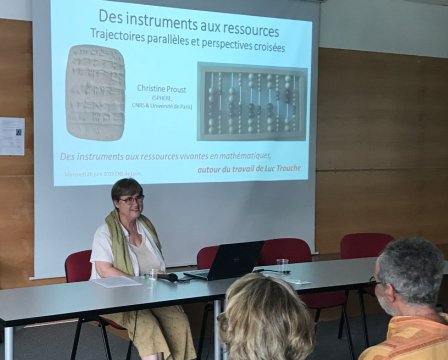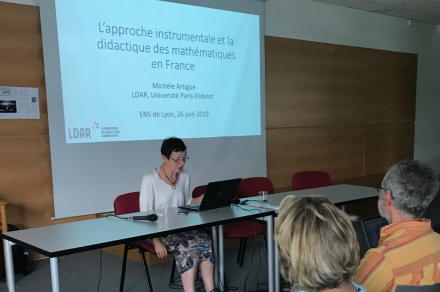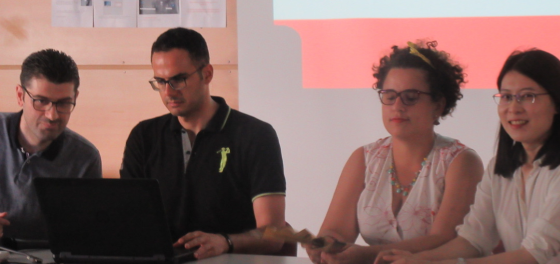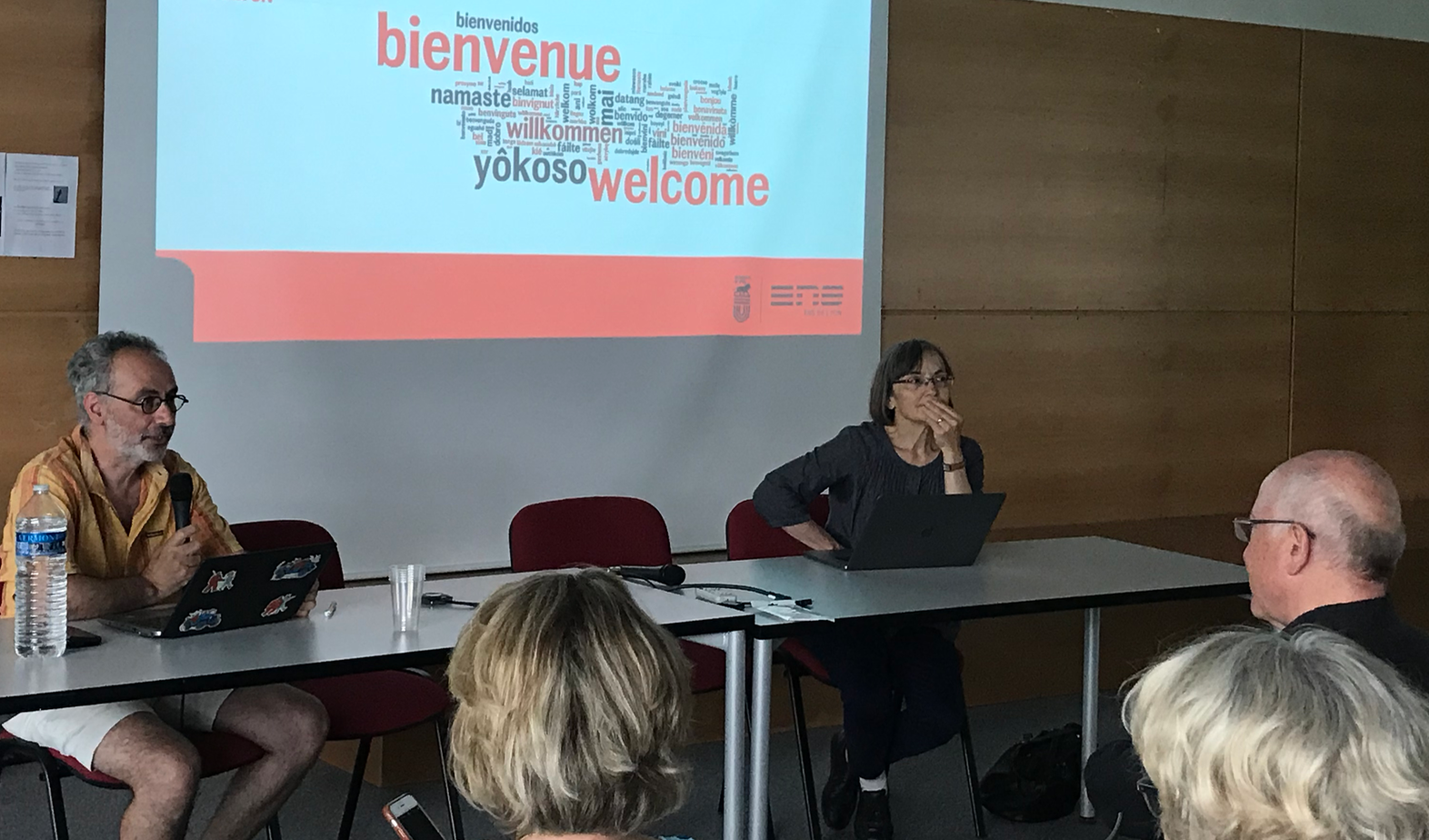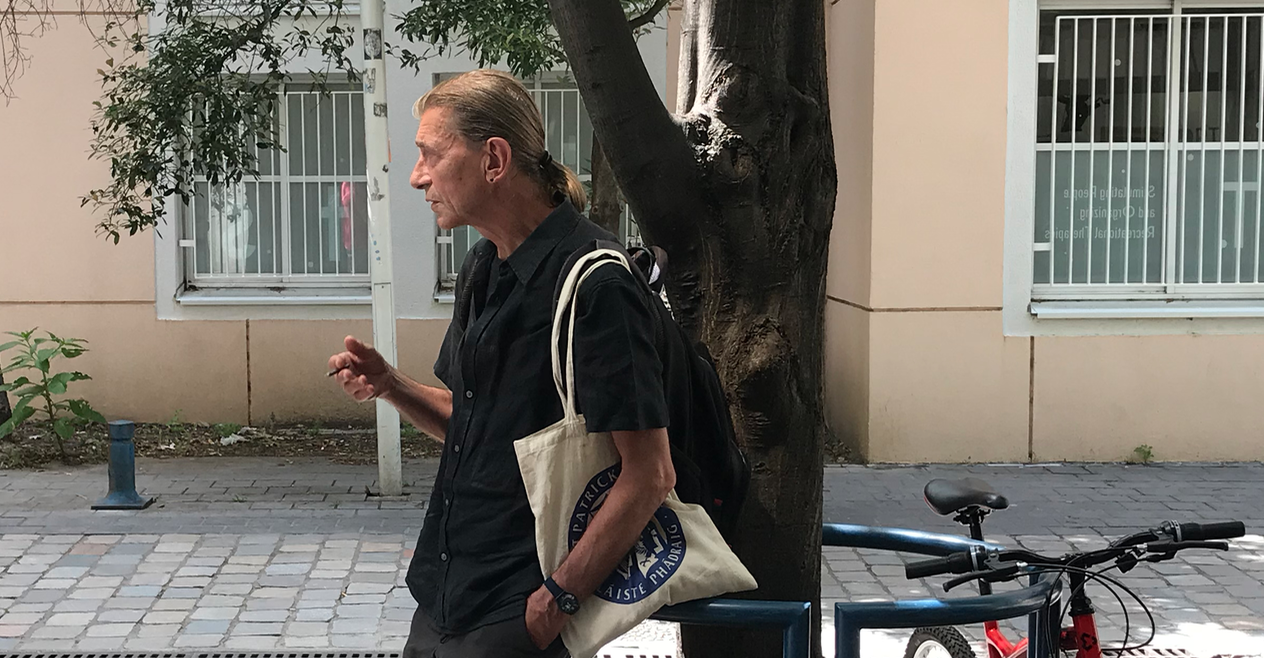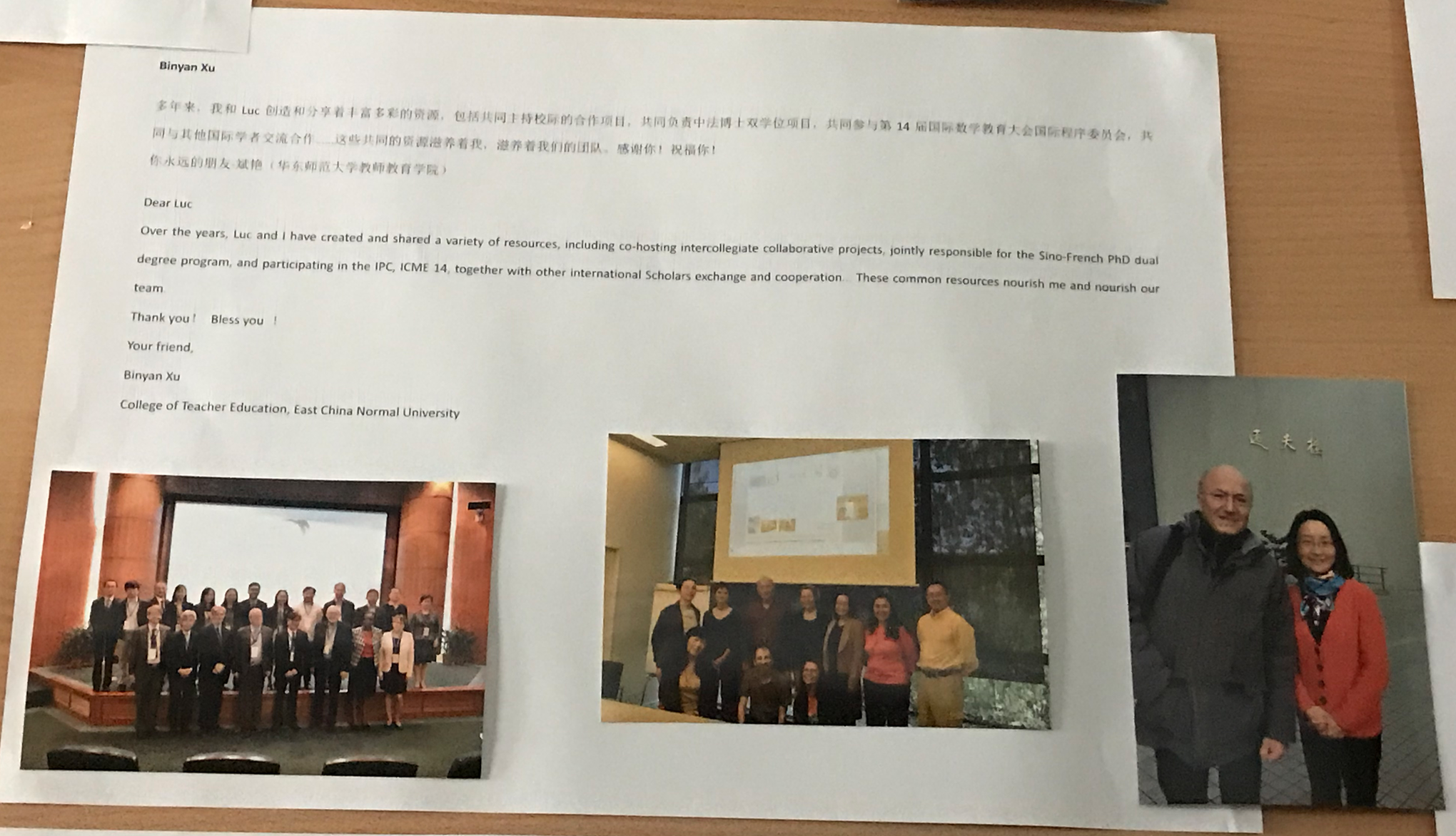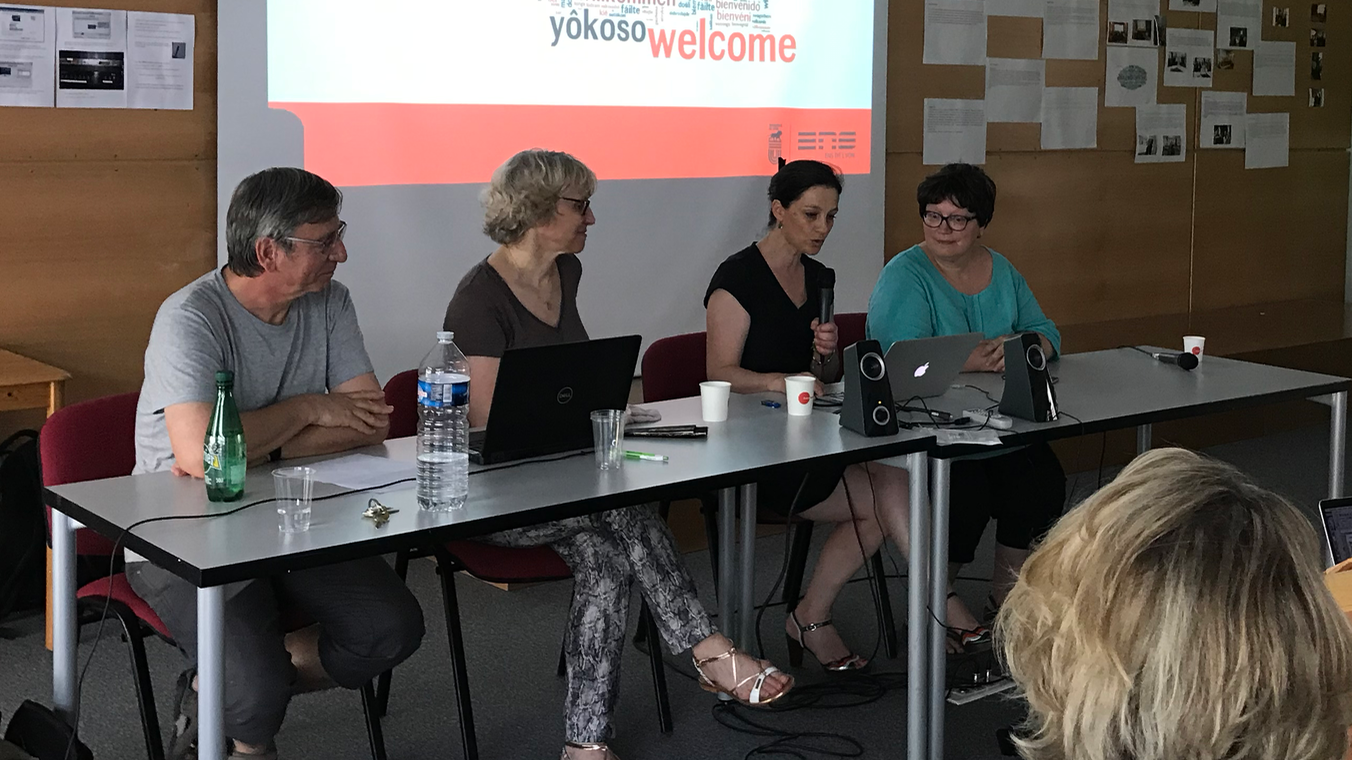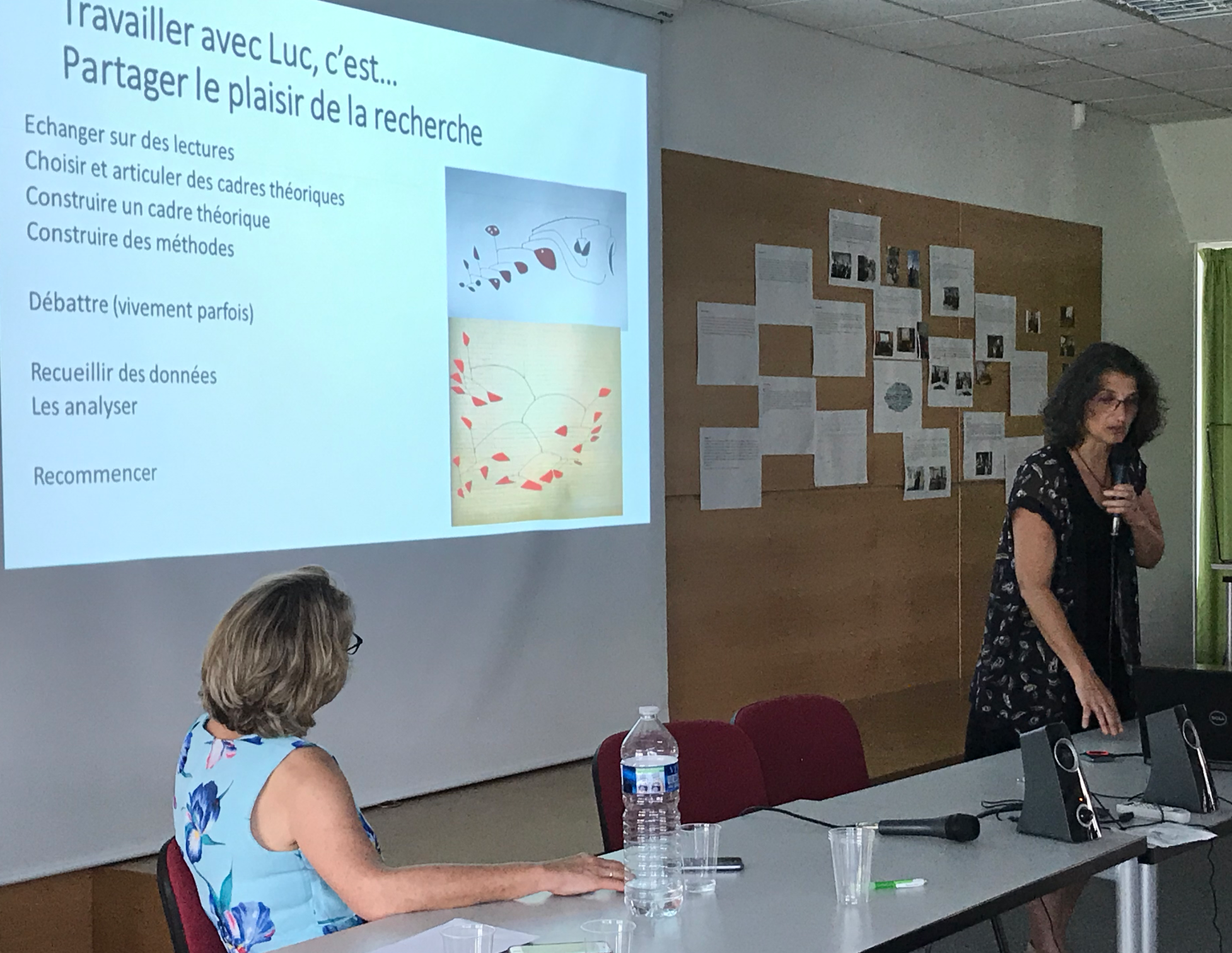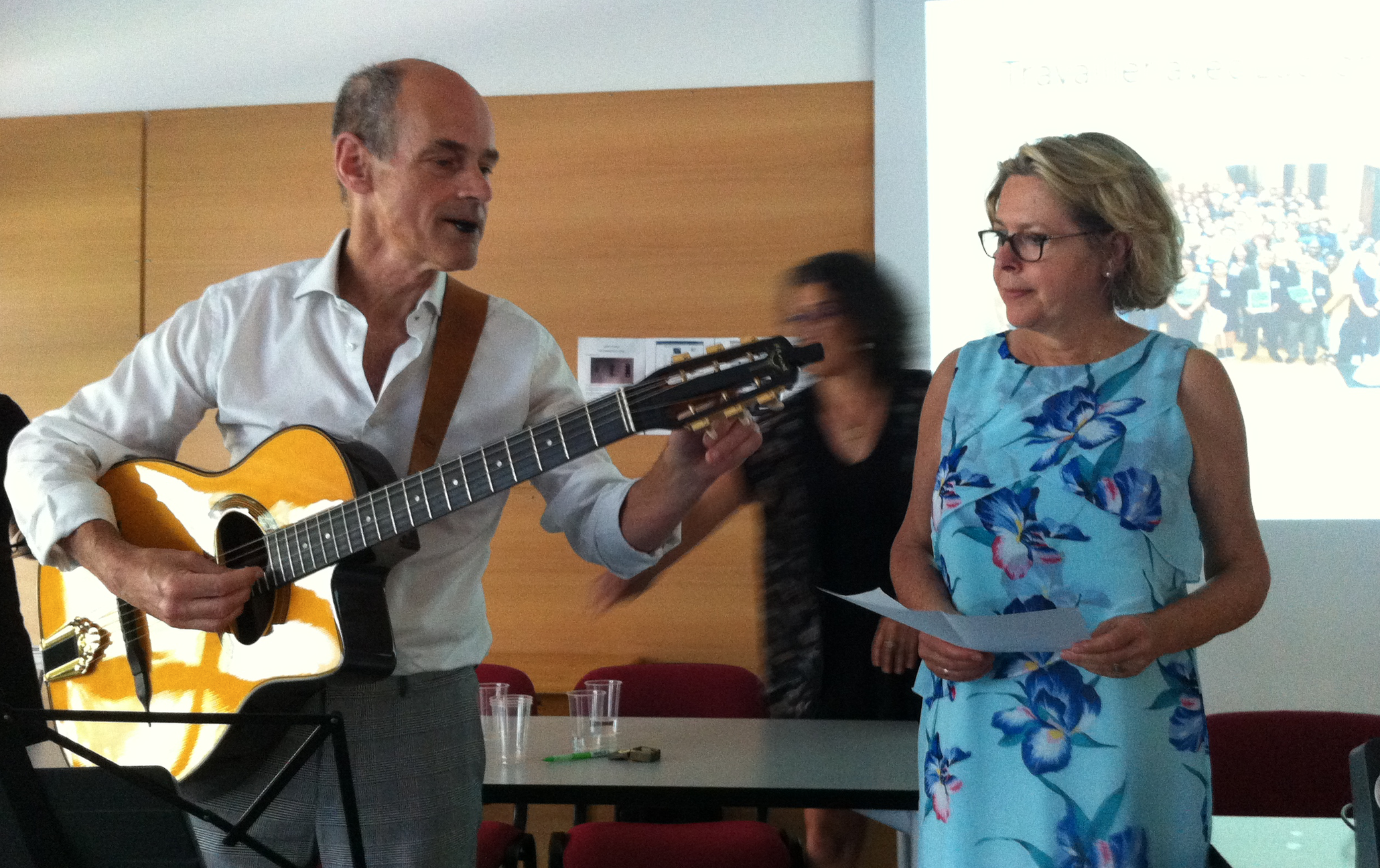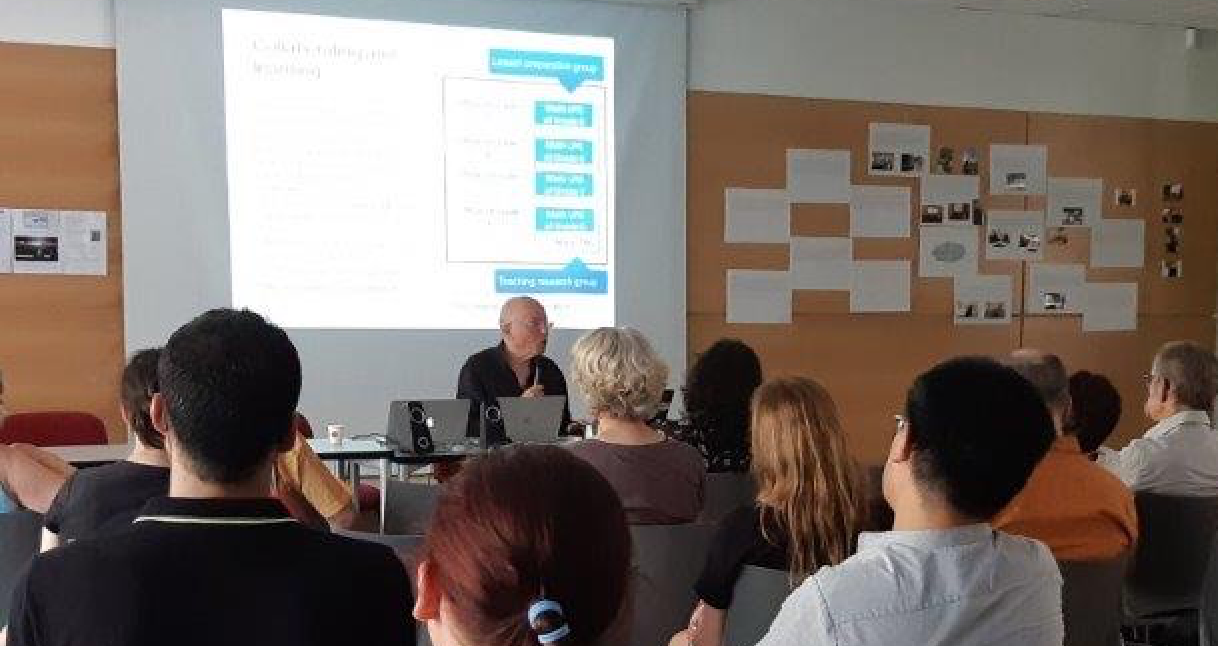
LecturesThe lectures have been given in English or French. We proposed here, for each of them, a short description, then, when existing, the corresponding slides. The video can be obtained on demand, by the organizing committee. Christine Proust (directrice de recherche, CNRS, Paris). From instruments to resources, parallel trajectories and crossed perspectives (lecture in French) Christine Proust has been interacting with Luc Trouche since her position as a student at Montpellier University. She participated, as an historian of mathematics, to the book "Ressources vives" and to its English version "Lived Resources". She evidences here, for understanding mathematics teachers documentation, in the case of scribal schools, the interest of crossing approaches (didactical and historical). Slides (to be downloaded)
Michèle Artigue (emeritus professor, Paris University). The instrumental approach and the didactics of mathematics in France (lecture in French) Michèle Artigue situates here the emerging of the instrumental approach in France, and beyond, an emerging in which she was particularly involved. She focuses on the contribution of Luc Trouche to this approach. Michèle Artigue and Luc Trouche have both contributed to a book which was a milestone for this approach : Calculatrices symboliques. Transformer un outil en un instrument du travail mathématique, un problème didactique, and to its English version The didactical challenge of symbolic calculators. Turning a computational device into a mathematical instrument. Slides (to be downloaded)
H. Sabra (lecturer, Reims University), with M.D. Alturkmani, K. Rocha & C. Wang (French Institute of Education). From instruments to resources, contribution of the PhDs (lecture in French) Two PhD students (who have just defended their PhD), a post-doc student and a young assistant professor evoke their experience of PhD supervised by Luc Trouche. They evidence how they fed on a theoretical frame, and in the same time, they contributed to its development. A PhD experience combine very concrete facts, and elements more meta, but, at each level, the collective constitutes a critical spring. Slides (to be downloaded) - The set of PhDs already defended
Nicolas Saby (Montpellier University) and Edwige Godlewski (Paris 6 University). The contributions of Luc Trouche to the IREM network and to the CFEM (lecture in French) Nicolas Saby succeded Luc Trouche as the director of IREM de Montpellier (Institute of research on mathematics teaching) in 2005. Edwige Goldlewski succeded Luc Trouche as the president of CFEM (French Commission on Mathematics Teaching) in 2016. In situating the contributions of Luc Trouche to these two structures, they evidence lthe richness of the network of associations, institutions, and academic societies that gather all the actors of mathematics teaching in France.
John Monaghan (professor, Universities of Agder and Leeds). Tools and instruments, a tribute to Luc Trouche John Monaghan proposes a reflexion on two very close routes, that of Luc Trouche and that of himself: both mathematics teachers in an upper secondary school, then, driven by a dynamics of reflexion on the role of tools for learning mathematics, becoming researchers in an University. This long-term journey lead them, with a mathematician, to conceive a book aiming to think the role of tools for practicing, teaching and learning mathematics: Tools and mathematics. Instruments for learning. Slides (to be downloaded) A video of a John and Luc's lecture presenting the book at ICTMT 13 (streaming)
Birgit Pepin (Eindhoven University of Technology). From instruments to resources, international collaborations Birgit Pepin evokes the international collaborations that developed together with the development of new conceptual approaches. This evocation lies on written messages, sent with pictures by researchers from Argentina, Brazil, China, Japan, Libanon..., and on a video message sent by Celia Hoyles and Richard Noss (London Knowledge Lab).
Celia Hoyles and Richard Noss contribution S. Soury-Lavergne and C. Loisy (senior lecturers) with J.-P. Rabatel and S. Roubin (teachers). The contribution of Luc Trouche to the research developed at the French Institute of Education The route of Luc Trouche in Lyon since depuis 2005 is evoked, first at the National Institute for Pedagogical Research, with the EducMath team, then, at the Ecole normale supérieure and the French Institute of Educationn, with the EducTice team. The features of an involved research are described, enlightening the educational institutions, interacting with teachers (particularily within the 'Lieux d'éducation associés à l'IFÉ'), aiming to develop fundamental researches. Slides (to be downloaded)
Paul Drijvers, Birgit Pepin and Ghislaine Gueudet. Working with Luc Trouche (lecture in French and English) Paul, Birgit and Ghislaine evoke different aspects of collaborating Luc Trouche, scientific, professional as well as personnal. Paul more particularily comes back to the concept of instrumental orchestration. Birgit addresses, under the model of 'laudatio', the experiences of co-writing, and the issue of mastering English language. Ghislaine, for the issues related to the genesis of the documentation approach to didactics, refers to her lecture at the International Conference Re(s)sources 2018. She describes then what a close collaboration allows to discover, and construct, from the design of schemas to the development of schemes - partially common. And all finishes par un song, orchestrated by Paul, sollicitating the participatio of the audience. Slides (to be downloaded) - The song (streaming)
Luc Trouche (emeritus professor, ENS de Lyon). The 'resource approach' to mathematics education. (slides in English, talk in French) Luc Trouche traces segments of his career, from the writing of a book with his high school students in 1998 to the publication, in September 2019, of a book on this 'resource approach' to teachers' work. He then presented, refering to his lecture at the International Conference Re(s)sources 2018, five projects that he thought should be worked on: teacher resource systems, seized as open dynamic systems; dialectic between the schemes oriented towards the management of digital resources, and the schemes oriented towards the resolution of professional problems; variation of exercises at the center of design processes; teacher naming systems as key to understanding the structure of their documentational work; and finally the collaborative work of teachers as an essential source of their professional development. Slides (to be downloaded) |
